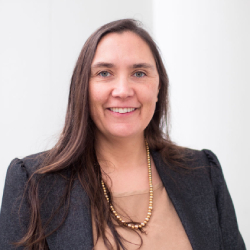2024 Candidate Gwen Bridge
 Gwen Bridge
Gwen Bridge
Principal
Gwen Bridge Consulting Ltd.
Candidate for: ESA President-Elect
I began my career with a passion for water. I believe that without clean water, we cannot have a healthy system of any kind; no healthy people without healthy land, and healthy land depends on healthy water. I did my Master of Science in Forest Hydrology in the Renewable Resources Department at the University of Alberta. For several years, I practiced hydrology for the Mescalero Apache and the Makah Tribe, learning not only how to apply hydrology to natural resources decision-making but also how to begin to listen to indigenous knowledge in a more focused way. Listening and thinking through the relevance of Indigenous knowledge to hydrology and ecological understanding from an indigenous systems and knowledge perspective led me to interact more intentionally with water as a living entity. Over time, I moved away from working with water and ecology in the field, leaving fish passage and native riparian habitats as, hopefully, lasting impacts. I started work in Indigenous land use planning and government negotiations, focusing on policy shifts designed to recognize Indigenous knowledge in decision-making.
Since I started Gwen Bridge Consulting 14 years ago, I have gained a broad set of experiences with Tribes, First Nations, and Indigenous organizations throughout North America, Federal governments in the US and Canada, provincial and regional governments in Canada, many Environmental Organizations and some private sectors. Much recent work has been offered through the Indigenous Engagement Institute (co-founder).
Currently, I am an Adjunct Professor at the University of British Columbia in the Faculty of Forestry and a sessional instructor at Blue Quills University, Canada’s only university owned by First Nations. I am the Coordinating Lead Author for the Transboundary Policy Options chapter of the USGS Continental Biodiversity and Climate Change Assessment. As co-chair of the global Indigenous working group for “Reinterpreting and Strengthening the Wilderness Concept through Indigenous Perspectives”, we are developing a Declaration that will be presented to the 12th World Wilderness Congress in October 2024. Through all my work, I am advancing a deeper understanding of the importance of Indigenous knowledge in regional decisions, and for shifting international, transboundary, and national policy towards reconciliation, between ourselves, and with nature.
What interests, experiences or skills would you bring to this position?
A member of the Saddle Lake Cree Nation in Alberta, Canada, I have worked all my career with Tribal peoples in the US and Canada. I have learned a great deal about Indigenous perspectives and have been privileged to advocate for their recognition and implementation. Being trained in hydrology has also provided me clarity about how to explain and differentiate two worldviews to both Indigenous and non-Indigenous Peoples. I have been leading policy advocacy that builds upon an understanding of how to implement these two ways of knowing in a practical sense, building upon the strengths of both. This is new work that we are tasked to do collectively and my 25 years of experience working through these questions and challenges positions me well to support the role of the Ecological Society of America as a critical place of synergy for “Two-Eyed Seeing”. I have led working groups, political Steering Committees, and negotiation teams and continue to support organizations with strategy, management, and director-level services.
How would you support ESA’s mission? How would you plan to promote DEIJ in ESA membership and activities if elected?
Science should be used more in decision-making, and ecologists, Indigenous and non-Indigenous, must be considered critical contributors to decision-making. Indeed, elevating Indigenous knowledge and decision-making requires policy and legislative regimes to be more responsive to directives derived from ecological understanding. In ecology, sometimes we feel frustrated by policy compromises that limit the pragmatic application of ecology. Science and Indigenous knowledge convey “earth truth,” and these findings, and for Indigenous knowledge, these directives, must be followed if we are to point our collective trajectory toward biodiversity preservation and ecological health. Indigenous knowledge includes ecological information; it also includes law, policy, and processes that look different from the Western system. ESA can recognize and acknowledge diverse voices in ecology and can support conclusions based both on science and Indigenous knowledge, as an exemplar of reconciliation practice. Ecology has strength because those who practice it are curious, strong, diverse, committed, and hopeful. These are qualities that we encourage and require if we are going to advance the improvements in management and policy that are necessary to protect All Our Relations. This work requires means working in partnership with economists, policy and lawmakers, planners, and practitioners. With ecology, with All Our Relations, at the front of our mind, we support a mycorrhizal like conversation, networking, and moving information and support to create well-being for all connected.